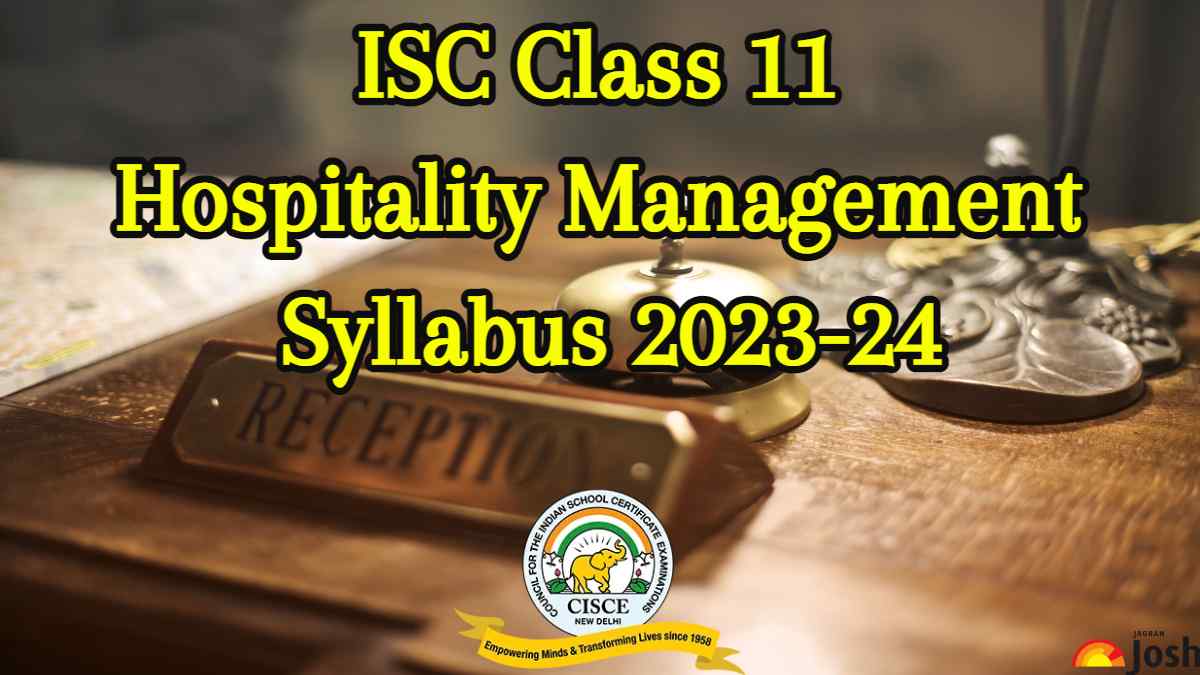Download Accounts 2024 Syllabus PDF
[ad_1] RBSE Class 11 Financial Accountancy Syllabus 2023-24: Download the Class 11 Financial Accountancy Syllabus…
[ad_1]

1. Soft Skills in Hospitality
Hospitality based English; personal development, motivation.
Hospitality based English: meeting and greeting phrases used in operational areas; personal development (patience, respect, tolerance, leadership skills, technical skills); motivation: self-motivation and the art of motivating others using appropriate language skills.
2. Basic Management Principles
Fayol’s principles of Management; Levels of Management.
Introduction to Fayol’s five principles of Management: planning, organizing, staffing, leading, controlling – to be explained generally and with specific reference to hospitality.
Hotel hierarchy: GM, departmental heads, supervisors, operational employees (To be explained generally and with specific reference to hospitality).
3. Hospitality Management and Tourism
Interdependence of Hospitality Management and Tourism.
Meaning of each. An understanding of why and how Hospitality and Tourism are interlinked, with examples.
4. Services offered in Hospitality
Services offered to guests, Characteristics of hospitality personnel.
Services offered to guests such as food and accommodation services and personal services (for example – tour arrangements, sightseeing, spas) – to be discussed in brief with examples.
Characteristics of hospitality personnel such as dedication, honesty, social intelligence, empathy, presence of mind, knowledge of different languages, punctuality, positive attitude, appearance, communication skills, networking, initiative, personal touch, taking responsibility, positive body language, hard work, desire to learn, ambition and talent
5. Departments in a Hotel
Food Production, Food and Beverage service, Front Office, Accommodation Operations.
Food Production – Knowledge of basic commodities (salt, sugar, fats, oils, raising agents); meaning of cuisine, examples of two Indian regional cuisines (own state and one other) and their popular dishes and two international cuisines and their popular dishes (French and Italian); basic knife skills and cuts of vegetables.
Food and Beverage service – Meaning of catering establishments, brief history of catering – thermopolia, inns, taverns (in Rome and Greece), dharamshalas, sarais, (in India) leading to restaurants, hotels, cafes in the present day; food and beverage service areas, departmental hierarchy, duties and responsibilities of staff, service conventions (brief overview).
Front Office – Departmental hierarchy, duties and responsibilities of front office staff. Brief explanations of how the Front Office has interdepartmental relations with all departments of the hotel; description and explanation of the use of property management systems.
Accommodation Operations – Role of accommodation operations in hospitality. Departmental hierarchy. General layout and structure of the department. Public areas – maintenance and decoration (examples of both public areas and guest rooms). Flower arrangements (low-long, front open, ikebana, horizontal).
PAPER II – PRACTICAL WORK (30 Marks)
Candidates will be expected to complete the practical work listed below and maintain a File for the same.
The file will be assessed internally by the Teacher out of 30 Marks.
List of Practical Work to be done throughout the year:
(i) Front office – standard guest phrases, telephone manners, guest handling, the guest cycle (role play). Demonstration and practice of the above through real-time situations e.g. school functions.
(ii) Accommodation operations – cleaning agents e.g. for public areas, flower arrangements (low-long, front open, ikebana, horizontal), projects on decor for public areas and guest rooms.
[ad_2]
Source link